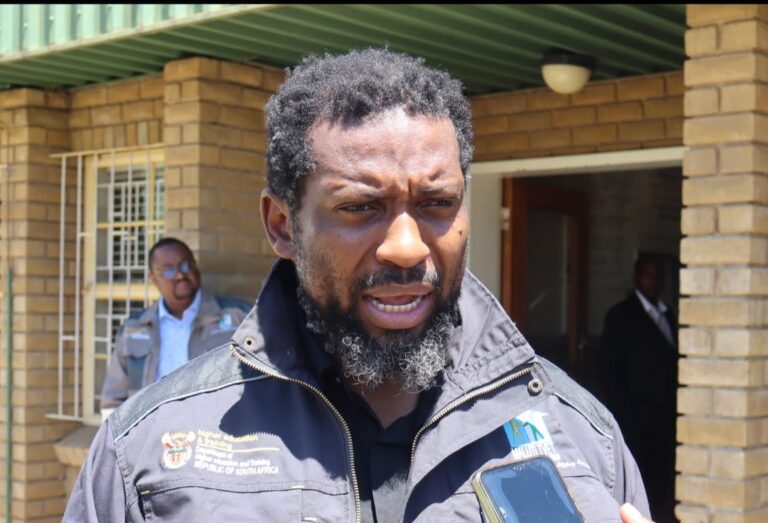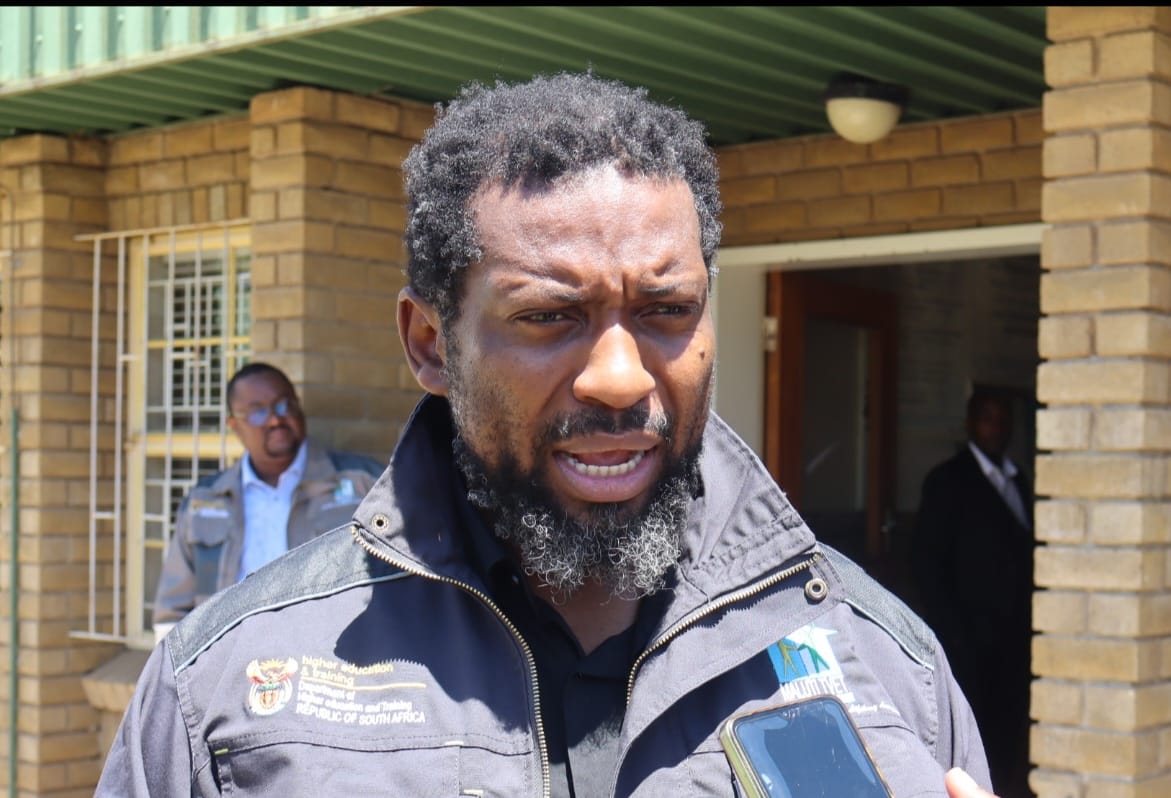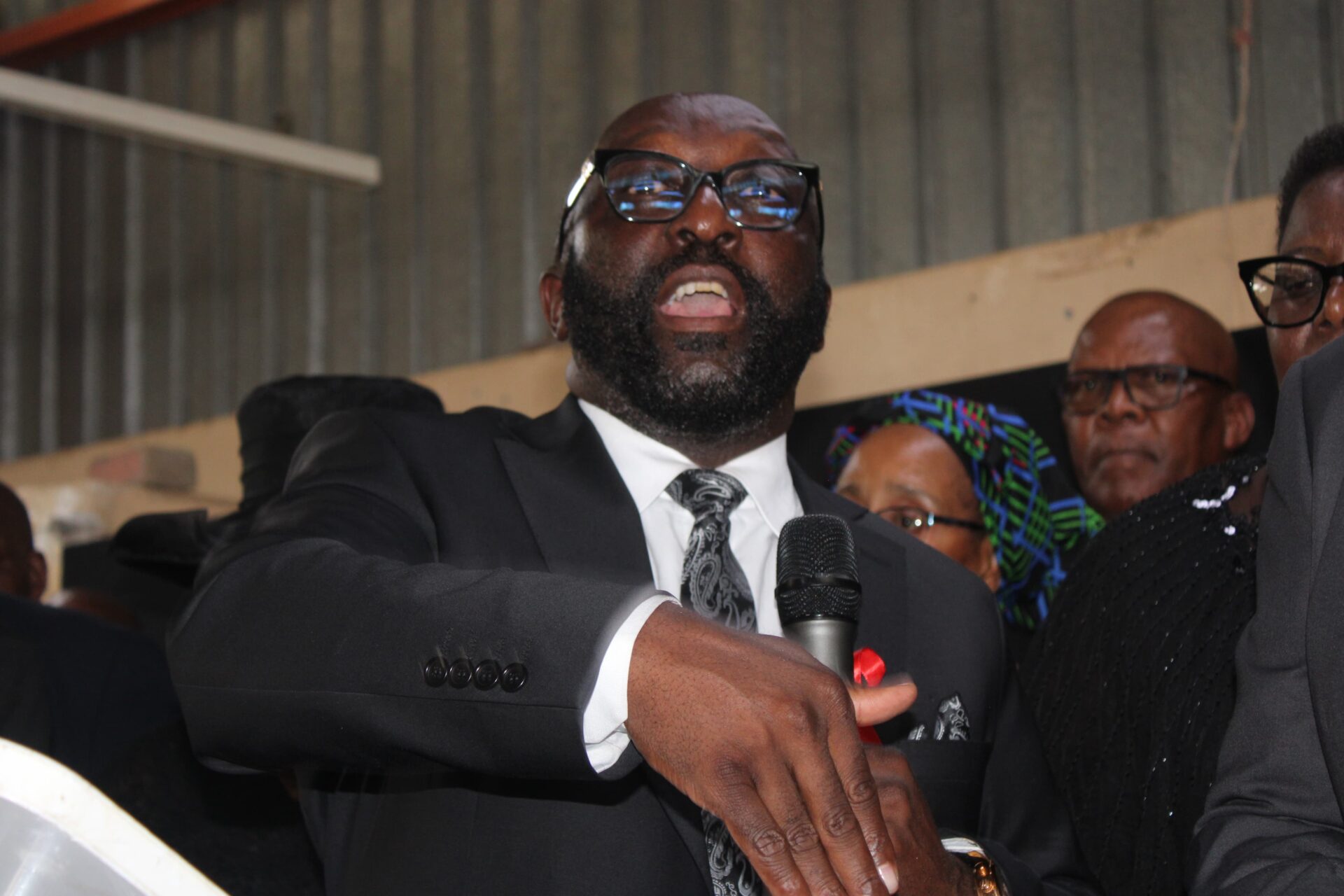By Bongani Tshabalala
BLOEMFONTEIN – ‘Give them flowers while they can still smell them.’ This is precisely what Central University of Technology (CUT) did when it honoured Khotso Nkhatho with an honorary doctorate in recognition of his contribution to the advancement of arts.
Nkhatho was conferred with an Honourary Doctorate in Communications and Language Practice. The veteran actor, filmmaker and Sesotho writer shot to fame in the 1980s for his role in the Sesotho play ‘Mopheme’ in which he played three different characters, most notably the main role of the enigmatic Mopheme himself.
“A Free Stater by birth, Dr Nkhatho is a great ambassador for our province. He is a qualified educator, which is what the CUT Faculty of Humanities strives to produce with students who enrol to further studies in education. As the University is currently revising its language policy, Dr Nkhatho’s experience and knowledge of Sesotho and acting represent what the faculty strives to achieve,” CUT said in a statement.

From the Department of Communication Sciences, to the Department of Design and Studio Art, Dr Nkhatho’s influence has left an indelible mark. He seeks to develop upcoming artists, who often include CUT students, as he usually casts them in his Sesotho plays, which are aired on SABC’s Lesedi FM.
Born in Ventersburg in the Free State in 1953, he matriculated from Tshiya College of Education in QwaQwa in 1973. He then pursued a Junior Secondary Teachers’ Certificate at Tshiya College of Education in QwaQwa in 1975 and thereafter, obtained diplomas in Senior Education and Higher Education at the then Vista University.
Dr Nkhatho started acting at the age of 15 in school dramas. He continued to pursue his passion for acting at college in QwaQwa, where he was trained as a teacher. He established a reputation among students as a popular actor, playing lead roles in most of the stage productions in which he was cast.
In 1976, Dr Nkhatho began teaching at Phiritona High School in Heilbron, Free State. He was a 24-year-old school teacher in Heilbron, a small farming town in the Fezile Dabi district, when he penned his first radio drama serial in 1977. It was broadcast on Radio Sesotho (now Lesedi FM), and this won him the first prize of R200 during a radio drama competition.
In October 1977, he left the teaching profession to become a radio announcer, newsreader and producer at the South African Broadcasting Commission (SABC) and has been there ever since. When Black television was launched in 1982, he joined TV2 – the channel that included Sesotho – as an actor, language adviser, screenwriter, and script evaluator. Some of the first television dramas he acted in, include Pholoso, Mafahla a Lahlaneng, and Thabure, named after a famous racehorse. The industry recognised his efforts with a string of accolades, notably the Astera Awards, bestowed for excellent work in radio presenting and television acting.
However, the best was yet to come. Lead roles in memorable dramas such as Mopheme (1989) and Mmalonya (1992) confirmed his reputation as the finest Sesotho-speaking actor on local television. Such is his veneration for his mother tongue, that he has never acted in another language. The Star Media House was the first media house to recognise his natural abilities in front of rolling cameras, when they awarded him The Star Tonight Awards for Best Actor in a Television Drama in 1990, for his role in Mopheme. In the autumn of his illustrious career, he was the recipient of a Lifetime Achievement Award by the South African Film and Television Awards (SAFTAs), bestowed on him on 2 March 2019.
Dr Khotso Nkhatho has contributed immensely to the conservation and development of Sesotho in the Free State in a time when indigenous languages have not been developed to their full potential, in order for these languages to become fully fledged media of instruction in a multilingual South African society.


















